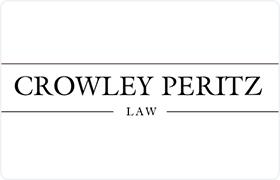 Reston Criminal Lawyers, Virginia
Reston Criminal Lawyers, Virginia
Sponsored Law Firm
-
 x
x

Click For More Info:
-
Crowley Peritz Law
10560 Main Street Suite 501 Fairfax, VA 22030» view mapCriminal Defense Law Over 20 Years Of Combined Experience
Our lawyers are experts in a variety of misdemeanor and felony crimes. We understand that choosing the best criminal lawyer for your case is not a simple task.
800-916-2741
Lawyers
1-3 of 3 matches



 Matthew Crowley Fairfax, VA
Matthew Crowley Fairfax, VA Practice AreasExpertise
Practice AreasExpertise